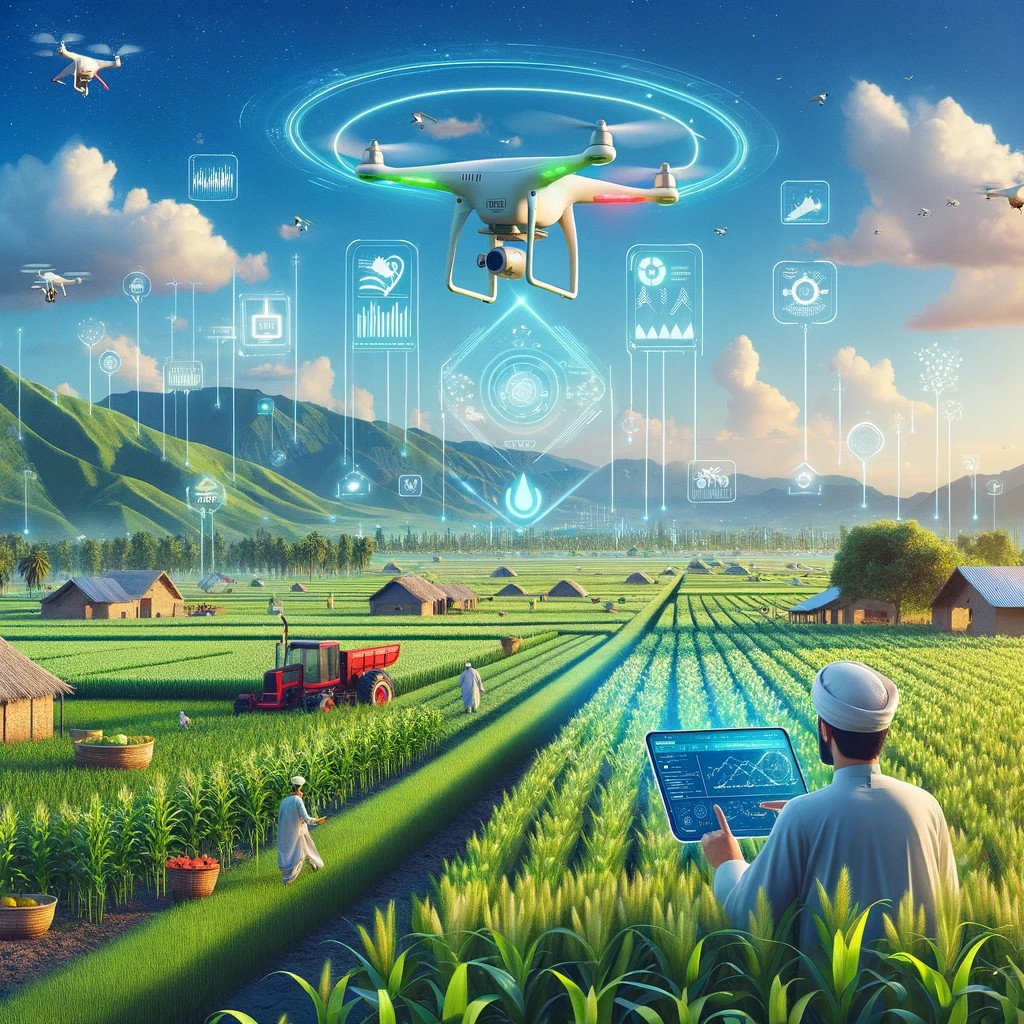In an era where technological advancement is pivotal, Pakistan stands at the cusp of an agricultural revolution driven by artificial intelligence (AI) integration. The country’s urgent need to boost food production against an exponentially growing population has led to rethinking traditional farming practices. AI emerges as a beacon of hope, promising to transform the agricultural landscape by enhancing efficiency, reducing costs, and ensuring sustainable food security.
The introduction of AI in agriculture marks a significant departure from conventional methods that have long struggled to keep pace with the growing challenges. Satellite imagery, weather sensors, and data-driven algorithms are at the forefront of this transformation. These technologies enable farmers to monitor crop cycles comprehensively, from planting to harvest, ensuring informed decision-making at every stage. AI’s role extends to optimizing resource use, such as precise fertilization tailored to soil content and automated irrigation systems that conserve water. AI is reshaping the farming experience, making it more scientific, efficient, and less resource-intensive.
Overcoming barriers to adoption
Despite the promise of AI, its adoption in Pakistan’s agricultural sector faces significant hurdles. The sector is beleaguered by factors such as limited education among farmers, small landholdings, and financial constraints. Infrastructure challenges, like inconsistent internet connectivity and power supply, further complicate technology adoption. Additionally, the scarcity of skilled professionals in AI and the inherent risk aversion of farmers present substantial barriers.
However, there’s a silver lining. A growing number of progressive, educated farmers are increasingly open to adopting new technologies, signaling a slow yet steady shift toward AI-enabled agriculture. This trend is supported by government initiatives, including forming a national task force on AI and developing a 10-year roadmap for AI integration across various sectors, highlighting agriculture’s strategic importance.
While touching upon agriculture supply chain optimization and weather prediction, the draft AI policy could benefit from a broader perspective. It should encompass the multifaceted applications of AI in agriculture, from precision farming to decision support systems. In response, provincial governments are urged to develop strategies and programs to facilitate farmers’ adoption of AI. These strategies should focus on addressing critical challenges such as climate change adaptation, efficient irrigation, pest control, and reducing energy costs.
A collaborative approach for a transformative impact
The successful integration of AI in agriculture necessitates a concerted effort from multiple stakeholders. This includes the government, private sector, and international development agencies. The approach must be strategic, prioritizing challenges where AI can have the most significant impact, such as improving crop yields and promoting resource-efficient farming practices.
As Pakistan navigates its way towards a digitally advanced future, the role of AI in revolutionizing agriculture cannot be overstated. While challenges abound, the potential benefits of AI in enhancing food security, boosting economic growth, and mitigating the impacts of climate change are immense. With strategic planning, collaborative efforts, and a focus on overcoming barriers to technology adoption, AI can indeed be the catalyst for an agricultural transformation in Pakistan, setting a precedent for other nations grappling with similar challenges.





